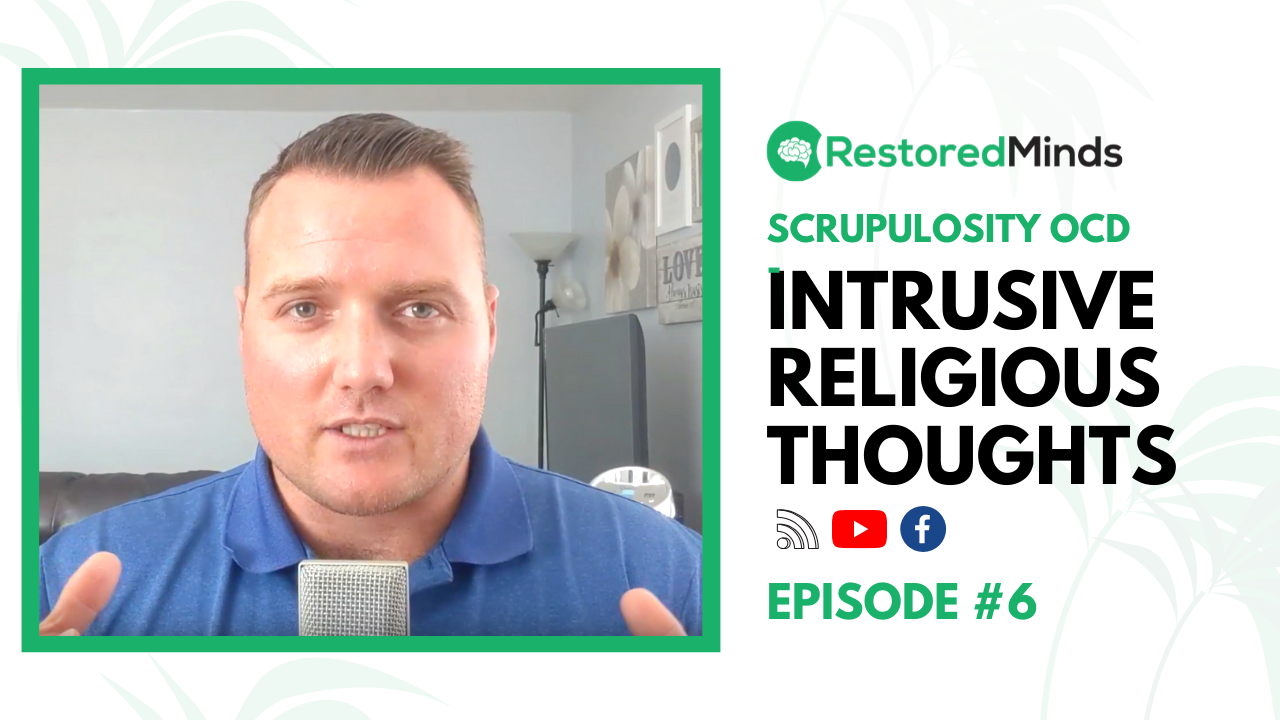Scrupulosity OCD - Religious Intrusive Thoughts
Oct 17, 2019
Understanding Scrupulosity OCD: Managing Intrusive Religious Thoughts
Welcome to another insightful post on Restored Minds! Today, we're diving deep into a crucial topic - Intrusive Religious Thoughts, often referred to as Scrupulosity OCD or Religious OCD. If you're struggling with this and searching for practical advice or just looking to understand it better, you're in the right place.
What is Scrupulosity OCD?
Scrupulosity OCD involves intrusive thoughts that are religious or moral in nature. These thoughts can often be aggressive, violent, blasphemous, or even sexual, directed towards religious figures or concepts. They can also include existential obsessions, such as doubts about the existence of God or the meaning of life.
Common Symptoms
People experiencing Scrupulosity OCD may:
-
Experience blasphemous thoughts or impulses.
-
Repeatedly ask for reassurance from religious leaders.
-
Engage in ritualistic behaviors like excessive praying in an attempt to manage these intrusive thoughts.
Key Takeaways for Managing Intrusive Religious Thoughts
To help you navigate through these intrusive thoughts, here are some fundamental points:
1. It’s Not a Religious Problem
First and foremost, it's essential to understand that these intrusive thoughts are not a religious issue but an OCD issue. Conflating the two can lead to seeking answers purely through religious means, which might exacerbate the problem. Recognizing this distinction is pivotal.
2. Love Versus Fear
In the battle against Scrupulosity OCD, a crucial concept is the difference between acting out of love versus acting out of fear. When riddled with fear, our actions tend to be compulsive and anxiety-driven. Reorienting your approach by seeing your faith through a lens of love rather than fear can significantly aid your recovery.
3. Separating OCD from Religious Beliefs
It’s critical to separate OCD-driven behaviors from genuine religious practices. If you find yourself praying repeatedly out of fear rather than faith, it's vital to recognize this as an OCD symptom. Embracing this perspective can help curb compulsive behaviors and foster healthier religious practices.
Steps to Overcoming Scrupulosity OCD
Recognize the Issue
Understanding that intrusive thoughts and compulsions are OCD manifestations is the first step toward effective treatment.
Avoid Compulsions
Refrain from engaging in compulsions, whether through thought suppression, avoidance, or ritualistic behaviors. Compulsions reinforce the fear and perpetuate the OCD loop.
Seek Professional Help
Consult with mental health professionals who specialize in OCD treatment. Cognitive Behavioral Therapy (CBT), particularly Exposure and Response Prevention (ERP), has been effective in treating OCD.
Final Thoughts
By understanding Scrupulosity OCD as an OCD issue rather than a religious one, you can begin to address it more effectively. Shifting from a mindset of fear to one of love, and clearly distinguishing between OCD symptoms and your genuine religious beliefs, will guide you toward recovery. Remember, recovery is possible, and with the right approach, you can reclaim your peace of mind.


